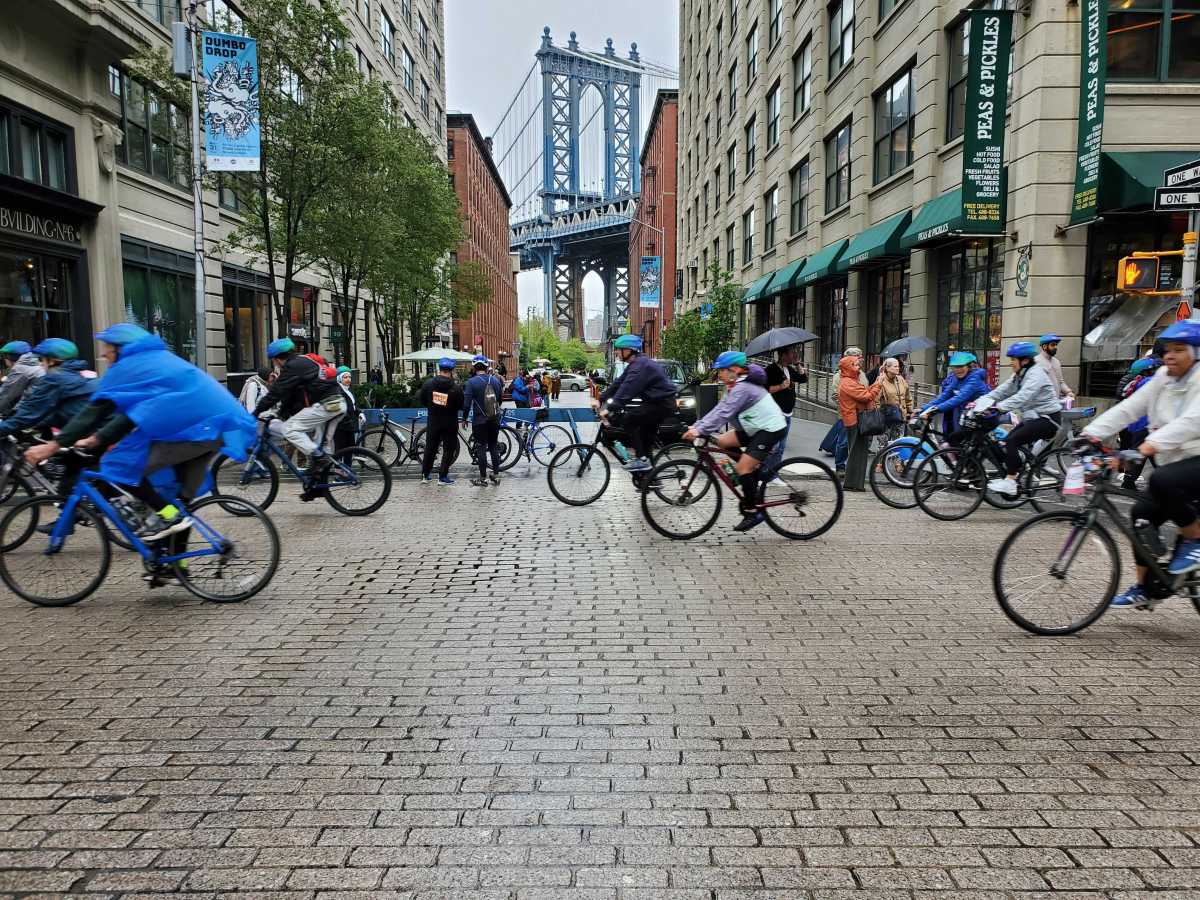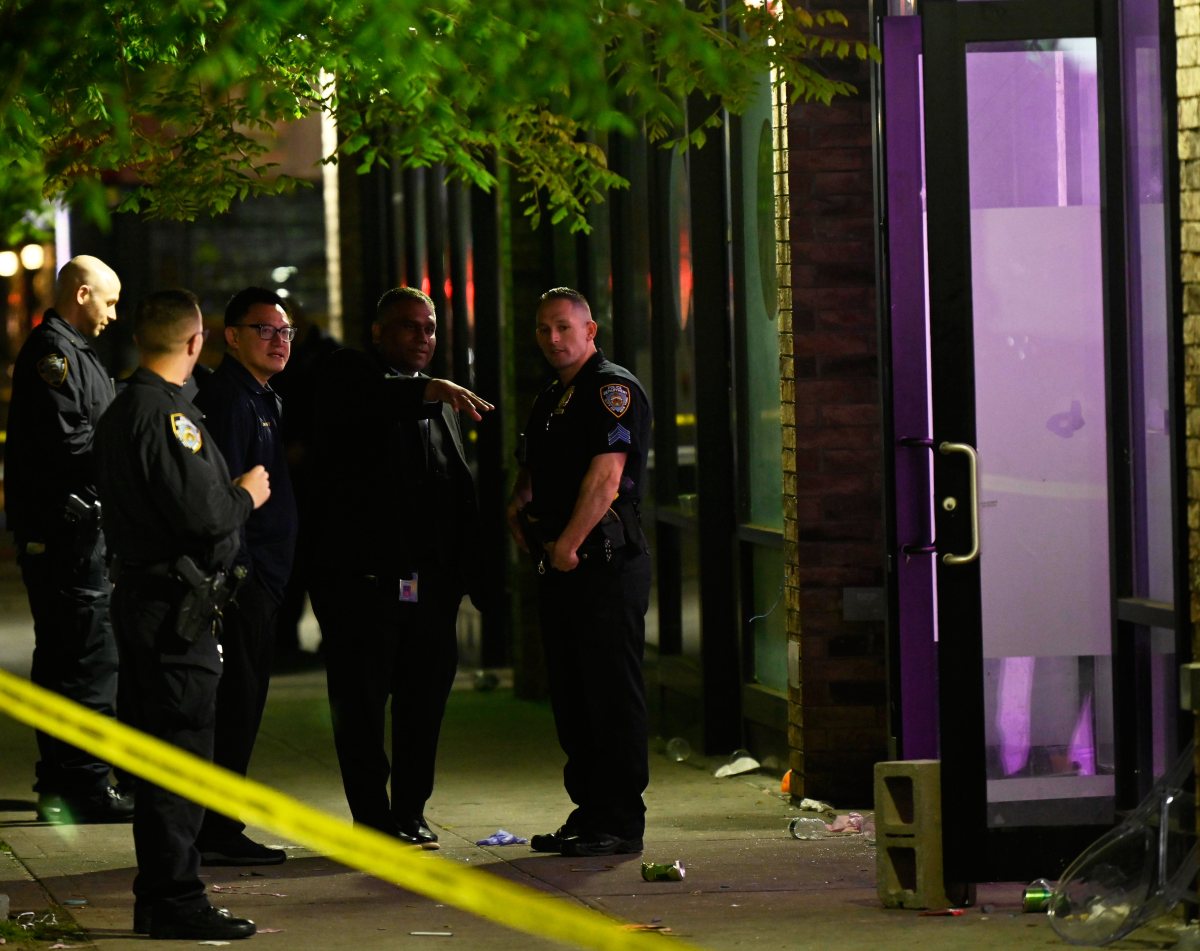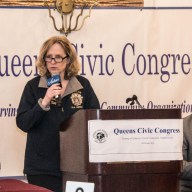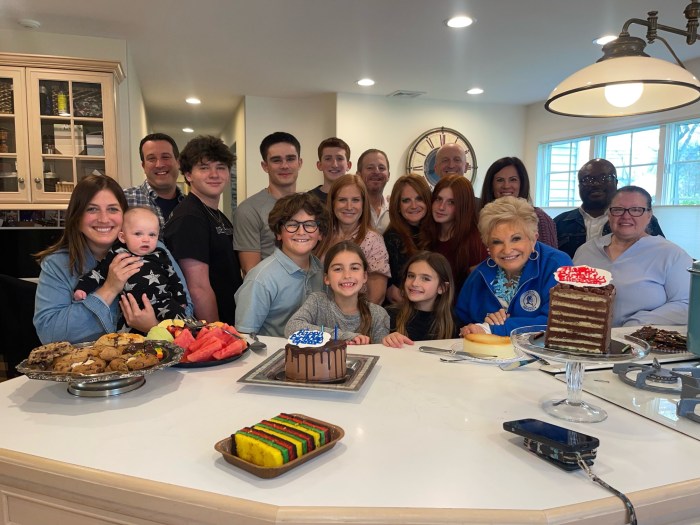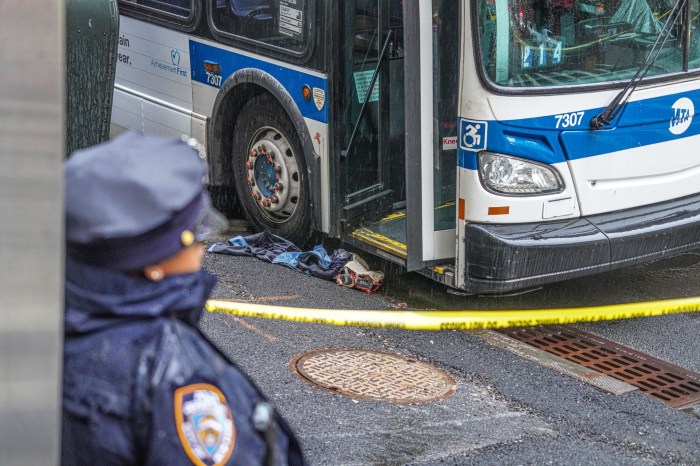By Jyoti Thottam
New York City Board of Education President William Thompson delivered a post-mortem on the dust-up between City Hall and the Chancellor's office at a meeting last week in Hollis Hills.
Thompson, the Brooklyn representative to the Board of Ed, came to Queens at the invitation of the Saul Weprin Democratic Club last Thursday evening. About 30 club members and other Queens residents braved the frigid temperatures to get an inside look at this past year's controversies in education politics from a key player in the drama.
Thompson began by dispelling any uncertainty about his ambition to be the next New York City comptroller.
“I'm serious,” he said. “I'm running.”
He spent the next 90 minutes dissecting the deteriorating relationship between Mayor Rudolph Giuliani and former New York City Schools Chancellor Rudy Crew, who was voted out of the chancellor's office on Dec. 23.
Crew and Giuliani had once been close allies, and that close relationship translated into more city dollars for education, Thompson said. But by February 1999, the mayor was calling for “blowing up” the Board of Ed.
Thompson said he saw no rhyme or reason to the remarks except that “a distance was created” between the mayor and the problems in the school system. Reportedly, the root cause of the rift was Crew's unwillingness to push forward an experimental plan for school vouchers and Giuliani's attempts to lobby board members to support the plan.
One of the first consequences of the spat, however, was a $1 billion reduction in the amount of money the mayor was willing to devote to the Board of Ed's five-year capital plan, Thompson said.
The plan was initially proposed as an $11 billion spending package, with $3 billion coming from federal and state funding streams that were not yet secured. Thompson said Giuliani initially had supported this kind of financing.
“Originally, when it was proposed, it was a great idea,” Thompson said. But after Crew and Giuliani's falling out, “things weren't quite as rosy.”
The negotiations about the plan pitted the boroughs against each other as Queens lobbied hard to get more building funds for its overflowing schools. When the dust had settled, Queens did get a larger proportion of aid, but the total commitment from the city was cut to $7 billion from $8 billion, Thompson said.
Poor test scores released in the spring and subsequent revelations about mistakes in the scoring that might have sent dozens of students to summer school unnecessarily also took their toll, Thompson said.
“The wear and tear of running a school system – I think it started to wear him down,” he said.
By late fall, Crew began to seem ambivalent about whether he wanted to remain as chancellor, telling reporters he was not sure how much longer he would stay.
“That was destabilizing,” Thompson said.
Under the terms of the chancellor's contract, the Board of Ed is required to confirm six months before the contract ends whether the contract will renewed, and Crew was required to say whether he intended to seek a renewal.
But Thompson said Crew sent his lawyers to negotiate a new contract without first approaching the board himself as is customary.
“You make sure the board wants to retain you,” Thompson said.
That move spurred even Crew's supporters on the board to seek only a one-year extension of the contract. In the end, Queens representative Terri Thompson cast her swing vote against Crew, and the board voted 4-3 against renewing his contract.
“It didn't appear as if Rudy Crew wanted to stay,” Thompson said.
Crew's departure set in motion another Board of Ed decision that was slammed by Giuliani, the choice of Citigroup executive Harold Levy as interim schools chancellor over former Metropolitan Transportation Authority chairman Bob Kiley.
“When we started this, the mayor disliked both of them,” Thompson said.
But when his first choice for the post was rejected, Thompson said Giuliani “absolutely embraced Bob Kiley.”
The vote for Levy again split 4-3, but this time Queens representative Terri Thomson cast her vote against the mayor's choice. Giuliani publicly denounced her decision as “the worst kind of politics instead of the best interest of the children.”
The mayor also questioned Levy's qualifications for the job, accused the board of bowing to the wishes of the teachers' union and directed city attorneys to investigate whether Thomson and Levy's employment by Citigroup constituted a conflict of interest.
Thompson dismissed all these criticism as baseless. He said none of the four initial candidates had the required educational credentials; the conflict of interest issue had been resolved before a vote was ever taken; and the United Federation of Teachers was unconcerned about who was chosen for an interim post.
Thompson also sharply criticized the mayor and his two representatives on the Board of Ed for their comments about Queens' Thomson.
“The attacks on Terri Thomson were despicable,” he said. “It was offensive. I've never seen anything like that.”
Levy officially began his duties last week. The largest task before him is preparing the city's schools for summer classes, but Thompson said Levy will also be involved in more specific management issues, such as choosing new superintendents.
Parents in District 29, which serves several neighborhoods in southeast Queens, have been clamoring for a permanent superintendent. The school board in District 24 in western Queens recently voted to replace its superintendent.
Levy will choose new superintendents in the districts that need them, “but it will be with a lot of assistance,” Thompson said.
The board plans to begin its search for a new chancellor within the next two weeks and hopes to reach a decision by late spring. School vouchers, the issue that drove a wedge between the mayor and the last schools chancellor, is sure to come up as the board makes its next choice.
“We will ask the question in interviews,” Thompson said. “For some, it's a make-or-break issue.”







